Welsh humanitarian worker remembers past experiences and reflects on current crisis
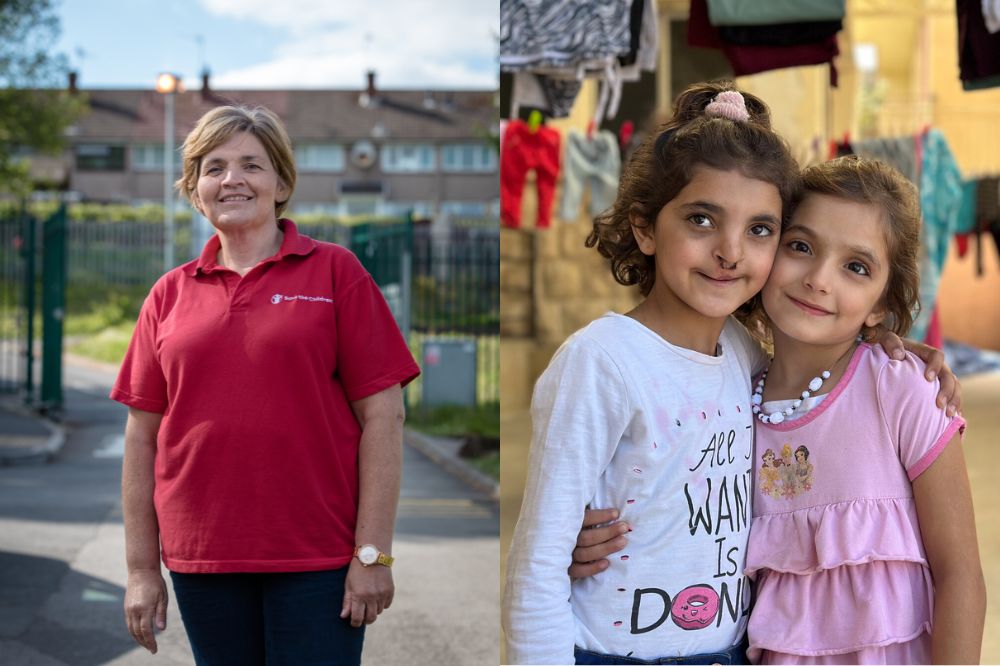
Over the past year, conflict in the Middle East has devastated lives across the region, and millions have fled their homes in search of safety.
Someone who knows all too well the effect this will have on families there, is Welsh woman and humanitarian worker, Deb Barry.
The miner’s daughter from Abertridwr in Caerphilly has been working with Save the Children for over twenty years in over 80 countries across the world, including Gaza and Lebanon.
Back in 2006 she was stationed in Lebanon, and vividly remembers the baking hot day in August when the ceasefire was announced, following the 38-day conflict.
Life changing
“There was excitement in the streets… cars were filling up with people who were driving back down South, to see what was left of their villages.… people wanted to return to their homes…. even if it was just a pile of stones. They would tell us ‘we will rebuild, this is our sense of identity’.
She described the parents who as soon as they had wages once more, had flocked to toy shops to buy presents for their children. It was a way to say “look, you can be a child again”.
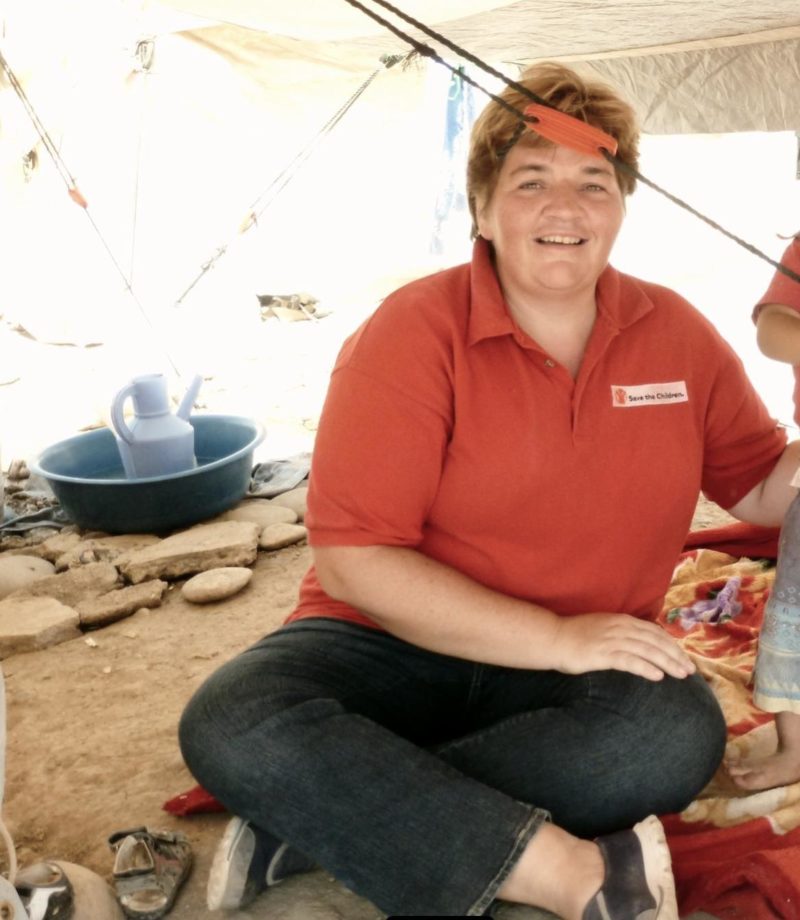
As people returned to their communities, Save the Children worked to establish child-friendly spaces, creating a sense of normality and routine for families. “There was a lot of joy.. I remember a lot of laughter and singing,” says Deb.
Eventually, classrooms began to be established and Save the Children were allocated a space in a building; “at the start of every activity we would remind all the children about the dangers of the bomblets from cluster bombs, and not to pick up anything shiny – because these bomblets looked like shiny toys .. they had these sparkly streamers coming out of one end.
“And I remember one little boy saying, ‘You mean one of these’? My translator just went white, and my heart stopped. He had a cluster bomb in his hand.”
“I just had to stay calm, and talk to him, while trying to get everyone else out of there. Then we got his Dad to come in, and we just talked to him for hours, talking about the Liverpool football team, anything, just waiting for the landmine team to get there and trying not to think of what could be.
“It’s one of those stories that I look back on, because it was life-changing for me. Seeing the love between a father and a son in that moment, that hug of just knowing they were alive at the end. And knowing what these communities have to keep going through.
“And now eighteen years later, that little boy is probably a dad himself, his own family living through another humanitarian crisis.”
In search of safety
Since mid-September when the conflict escalated in Lebanon, more than 1.2 million people have had to leave their homes.
Shelters are overwhelmed, and hospitals are struggling to treat the thousands of people injured. Hundreds of thousands have crossed the border into Syria in search of safety.
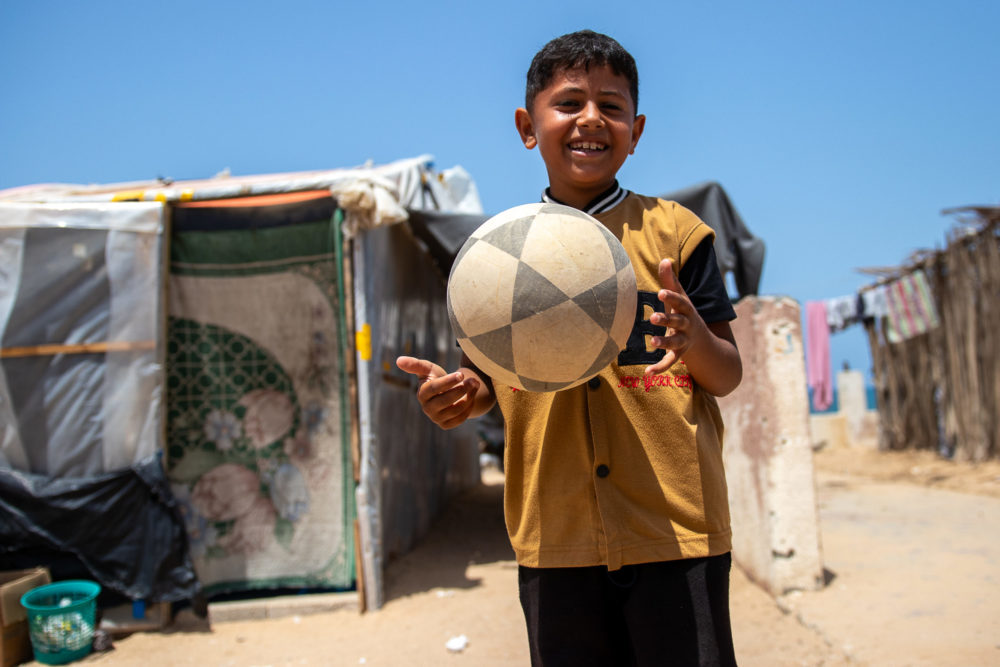
In Gaza, the scale of need is overwhelming, with thousands of people already dying of hunger and disease, as well as injuries caused by the conflict. Food and clean water are desperately scarce and ninety percent of the population have been displaced, often multiple times.
The DEC Middle East Humanitarian Appeal has now raised £1.6m in Wales and over £30m at UK level since it was launched four weeks ago. The appeal is intended to fund the lifesaving humanitarian work of its 15 member charities – of which Save the Children is one.
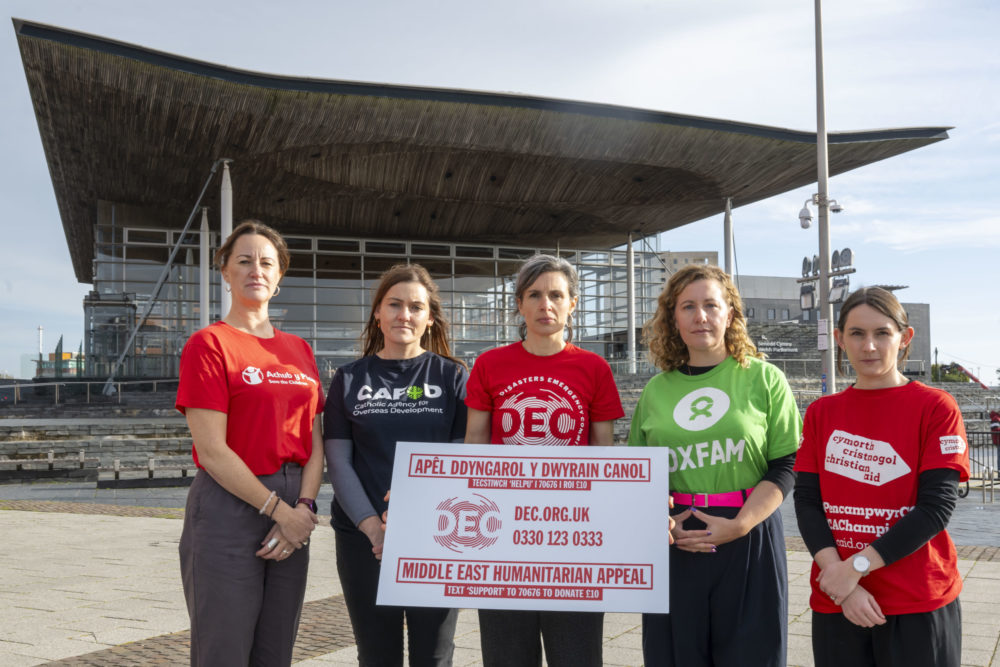
In her current role as Save the Children’s Head of Learning and Capability, Deb is supporting teams, who she speaks to regularly. “We’ve got amazing teams in Gaza and Lebanon, some of the staff have been working there for many years… So, it’s about supporting them, so that they can deliver the assistance that’s needed.”
In terms of the needs “the most urgent thing for families right now is physical safety,” says Deb. “Parents are asking us ‘where is my child going to sleep tonight?’ Before they’d wonder where they can find a bed – but now it’s more about where they can sleep where nothing will fall on them if there is an airstrike”.
The difficulty is that at the moment we can’t even confidently tell them where that place of safety is.”
Despair
Reflecting on how things have changed in both countries since 2006, Deb worries about the lack of hope within communities. Over her career, she has witnessed the despair that losing access to education – and future dreams – creates in children and young people.
“Nearly every single school and university building in Gaza has been damaged or destroyed. What message does that send? Some of the young students we’re speaking to are saying that they have nothing to live for. And we’re saying yes, you do have things to live for. You have families. You can rebuild.”
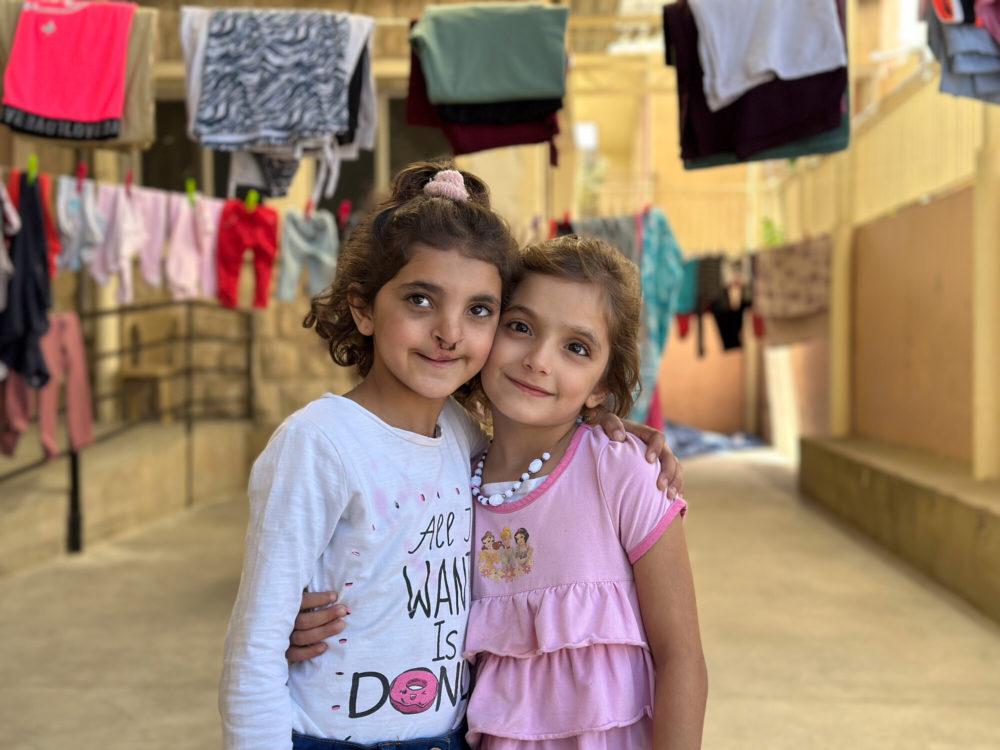
The DEC’s 15 member charities, including Save the Children, are responding right now in Gaza, Lebanon, the West Bank and Syria. They are providing lifesaving food, water, shelter, medicine as well as supporting families in a myriad of other ways.
“Sometimes the smallest things are the biggest things,” reflects Deb. “Sometimes it’s about reminding parents how important a routine is for wellbeing; even just getting the children to brush their teeth every day. Keeping that sense of normality is a great help to everyone. It is one thing they can control.”
For more information about the DEC’s Middle East Humanitarian Appeal, and to make a donation, visit www.dec.org.uk.
Support our Nation today
For the price of a cup of coffee a month you can help us create an independent, not-for-profit, national news service for the people of Wales, by the people of Wales.





